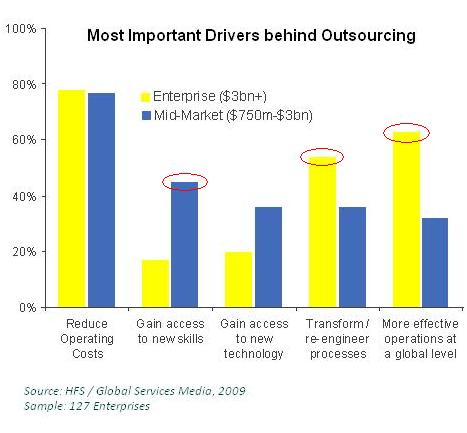 "Most of our managers are happy sitting on a shrinking business" bemoaned a senior executive the other day. Sound familiar?
"Most of our managers are happy sitting on a shrinking business" bemoaned a senior executive the other day. Sound familiar?
I hate to say this, but too many senior executives I talk to these days adopted this survival mechanism during the economic crisis, and are clearly struggling to change their mind-set now it's clear that armageddon has been averted. And the main reason seems to be that the last year has exhausted them, preventing fresh, bold decisions to be made. Hey – it's exhausted everyone.
Smart business leaders are now trying to re-energize their staff, take that deep-set panic out of the daily job, and find reasons to celebrate, like a not-so-bad-quarter.
I clung to the forlorn hope that a year-long economic crash, a transformative president, and new approaches to business ideology would encourage businesses to start thinking differently. But, in many cases, I appear to have been naïve . The result is that many businesses are going to have to force real change upon themselves to escape this malaise.
From wanting change… to embracing it
In reality, most businesses are coming out of recession having already cut visible costs to the bone, for example areas where cost can be directly extracted from the business without any form of arbitrage such as travel feezes, headcount reductions from non-critical areas, budget reductions across departments in areas such as marketing or IT, and so on. The next steps are to explore cost arbitrage through labor (i.e. outsourcing), and ultimately process transformation that should accompany any form of outsourcing. Simply put, it's nigh-on impossible to dig out further pockets of cost, without re-wiring the guts of business operations to find new efficiencies.
Global sourcing provides one of those vehicles where businesses
can effect progressive shifts in their business models to approach things differently. It can provide the change agent to make this happen, but only when our management talent has the energy and determination to look at things differently – and refuse to settle for sitting on that shrinking P&L.
This malaise affecting many businesses resembles the one affecting the United States, where the majority voted for change, but now the President is actually trying to enact some, we're seeing a great deal of negativity and resitance from many who voted for him.
I recall the recent survey (see chart below) we ran with Global Services media, where the main drivers behind outsourcing – after cost reduction – are the desire to globalize business operations, effect process change (innovation) and access new skills and acumen. However, when push-comes-to-shove, will business managers really embrace such disruption from their "old normal", or will they resist it, rather like many US voters now resist the change their President is pushing?
So many of our businesses, rather like many United States' voters, have reached an impasse. It's one thing to want change, but a completely different rationale to accept it. It's time to brush off the fatigue, accept this "new normal" and make some bold decisions to start growing again. That ultimately means focusing on where you add value and finding global partners and resources to work with you on maximizing that focus. Not protecting your shrinking fiefdom.
Posted in : Sourcing Best Practises







Phil,
It’s all about sales and a sales pipeline. Recessions deplete the pipeline and it takes time to get it rebuilt. Further compounding the issue, banks are still very reluctant to lend and if you work in an industry that relies on short or medium term lending to fund capital purchases, you still have quite a long time to wait for customers to come back in numbers.
Having said that, smart companies (or perhaps lucky managers) will see an economic swing to the positive as it happens and react to build up resources in anticipation of customers coming back. They also recognize the history of other successful companies that captured significant marketshare away from competitors who did not react as quickly. It’s all a timing issue. Problem for managers and companies today is this recession is deeper than the norm and banks are playing a much more substantial role in gating economic expansion. Not to mention, banks are still waiting to see what additional government mandates will be enacted that will materially impact the way they do business.
Of the various recession models, we can have a V recession or a W recession (if we try to expand too quickly) or a U recession. My guess is that we’ll have an L recession for the next several years. The US, EU and Asia got very used to lots of loose credit from banks. I sense we have a long wait before we return to anything approaching the credit practices of the past several years.
Where I think companies can benefit in the short term is something they’ve been largely reluctant to embrace, customer service. Because of loose credit, many companies got complacent on considerations of how it worked with customers. Companies that now work diligently to spend more quality time with their best customers will gain from expansions of their customer’s needs as the world economy turns around. But companies need to invest in the people who can be the face of the company with their customers. This is starting to happen in small numbers, but again, suppliers who are struggling for operating revenue are reluctant to make investments that may eat into cash reserves. It’s a catch-22. Hence my L recession prediction.
Ed
Phil – I agree with Ed that sales are important, my point of disagreement comes when incoming sales are looked upon as a saving grace to a company unable to show a profit.
If the company doesn’t do something to effect their profitability now, their competitors will. The competitor then becomes the leader and as always… everyone else will follow and pick up scraps or will not follow and fade away.
You’re right, as financially painful as it may seem, someone is going to emerge as the leader, and if you’re unwilling to take the financially painful steps necessary now, it won’t be your company.
Larry Ellis
Phil, a quick clarification and addition thanks to Larry’s excellent comment. I agree with Larry that there are times when painful measures need to be taken. I’ll assume here we’re talking about staff cuts. Quite frankly, cutting staff (and I’ve been on the receiving end of this a couple of times) is dumb unless your company is on the verge of bankruptcy. Here’s why: businesses today (apologies, I’m casting way too wide a net) have too often developed the ideology where every time there is a business hiccup they turn to layoffs to balance their books. What’s the result? Employees become fearful, which results in either a withdrawing from taking bold steps like sticking your neck out to make something good happen; or, they reconsider their tenure and spend considerable time exploring opportunities elsewhere. Neither are good business practices.
Larry, I looked at some of the responses to your earlier question, can poor management really cause a company to fail. From my perspective, there’s a fairly resounding YES. What contributes to this is the ideology I described above.
As managers, what do we do? We all want healthy, well run organizations. To realize this, managers need to communicate openly with their employees; from the CEO all the way down to the individual contributor. If someone isn’t pulling their weight, work with them. If sales are not matching expenses, instead of jumping right to the layoff switch, work with your employees to build a compromise scenario where they are treated as contributing members of staff and beneficial to the long term health of the organization. This is the definition of teamwork and living up to all the rhetoric stating that employees are a company’s most valuable asset. We all want to be part of a team and managers need to be willing to lead as team leaders, which can be challenging if the ideology of the company says, don’t stick your neck out.
Ed
Such a timely article, Phil.
Many of the new outsourcing deals we’ll see will have this motivation for changing tired, old business models at the heart of them. You’re right in viewing outsourcing as a change-agent for many businesses stuck in a rut in today’s climate.
You’re also correct in highlighting that many people are tired after a tough year, and it’s hard to break out of that bunker-mentality. The challenge for business leaders is to drive new energy and positive ideas to their managers… no mean feat,
Jim
Phil,
Times like these separate leaders from managers. Mangers are likely to be afraid to change. Leaders embrace change and capitalize on the chaos created by the crisis.
I believe there are three basic steps leaders need to undertake to restart profitable organic growth in their companies.
First, they need to optimize your current business model. This begins with deep understanding of your customer needs. Once they understand what their customers value, they can focus their marketing communications and business operations to deliver this value. The should focus on the processes that are bottlenecks to their organization’s throughput. Once they triage their current situation and institute a culture of continuous improvement, they are ready to move to the next step.
The second step is to find a small, well-defined segment of the market their company can dominate. This will start the growth engine. By dominate, I mean providing the best solution to the needs of your target market, so they become the dominate supplier. By providing a better solution, they gain pricing power.
Once they have achieved a dominate position in one market segment, they can expand into adjacent market segments and repeat the processes used in step two to dominate this segment. This process can be repeated into subsequent segments, fueling growth. Through repetition, growth-oriented companies become more efficient at moving into, and dominating, new market segments.
Ed
I couldn’t agree with Ed more. I would like to add one more piece-true leaders make sure they have the right people on-board. This should not only be done in bad times but in good times as well. They have to foster a environment of trust, set the vision for the team and let the right people get them there. They have to open to passionate discussions and different points of view-in short they have to be able to “handle the truth.” In times like these, the true “cracks in the armor” of inefficient, poorly run, and/or mis-manged companies come dramatically to light-there is no hiding! I find it interesting the number of companies that this recession has shone a spotlight on. It truly shows what I believe is one of the great weaknesses of this country-poor leadership within companies.
Gregory
If, as you claim, most companies coming out of the recession have already cut visible costs to the bone and you also show through the survey that outsourcing is primarily done to cut costs, then it would appear that these businesses have already outsourced and benefited.
Now, how can more outsourcing be the ‘re-wiring of the guts of the business’?
I am missing something here.
@Suresh: When I talk about “visible” costs, I am referring to areas where cost can be directly extracted from the business without any form of arbitrage (i.e. travel, headcount reductions from non-critical areas). The next steps are to explore cost arbitrage through labor (i.e. outsourcing), and ultimately process transformation that should accompany any form of outsourcing. I added this into the piece to make myself more clear. Good catch b/w
PF